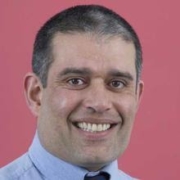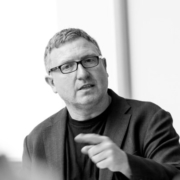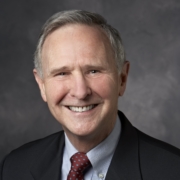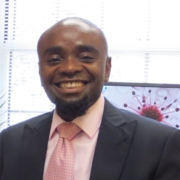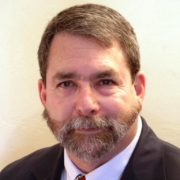Michele Schweisfurth
Developmental Leadership in the Philippines
Today we look at developmental leadership in the Philippines. My guest is Professor Michele Schweisfurth.
In a recent report for the Developmental Leadership Program, with support from the Australian Department of Foreign Affairs and Trade, Michele and a team explored the ways in which higher education has supported the emergence of developmental leaders and the formation of networks among leaders in the Philippines.
Michele Schweisfurth is Professor of Comparative and International Education at the University of Glasgow, where she is also co-Director of the Robert Owen Centre for Educational Change.
Her latest co-written report on developmental leadership in the Philippines can be downloaded here.
Citation: Schweisfurth, Michele, interview with Will Brehm, FreshEd, 38, podcast audio, August 21, 2016. https://freshedpodcast.com/micheleschweisfurth/
Will Brehm 0:20
Michele Schweisfurth, welcome to FreshEd.
Michele Schweisfurth 1:44
Thank you. And thanks for inviting me.
Will Brehm 1:47
You’ve recently conducted a case study on developmental leadership in the Philippines. What is developmental leadership?
Michele Schweisfurth 1:58
Well, developmental leadership is leadership that promotes development. It seems fairly common sense that we would want leadership to be developmental but it isn’t always. One of the problems of development is that there have been leaders who’ve been less than developmental. And some, in fact, have been even predatory. So, developmental leadership is specifically interested in leadership which has promoted development, social justice, and some of those public goods that come with it.
Will Brehm 2:35
So, what type of leaders were you researching?
Michele Schweisfurth 2:39
Well, in the Philippines, we chose three different social movements or political movements that were in the post-Marcos era. And we were basically looking at people who had been involved in procurement reform. So, people who’ve been involved in a sort of technical reform, which was around promoting transparency. People who were involved in the Mindanao electoral reform, which is part of this bigger movement within the autonomous region of Muslim Mindanao, and was about ensuring that elections were clean and fair. And the third was a social movement called Gawad Kalinga, which means to give care, and that’s a large NGO that works with the poorest people in society. It works somewhat outside the political system but to similar ends in terms of redistribution, in terms of pro-poor policies, and so on. So, we chose those three movements. And what we were looking at was the leadership within them. So, we tried to get the person highest up in the leadership that we could talk to, and then talk to other people around him or her. So, we spoke to really quite some powerful and influential people. We chose those reforms on the basis that they were promoting things like transparency, had a pro-poor agenda. And we chose the leaders on the basis of the fact that they were the leaders and, obviously, willing to talk to us, which was an important criteria.
Will Brehm 4:21
What sort of environment do these leaders in the Philippines operate in?
Michele Schweisfurth 4:29
Well, I don’t know how much listeners know about the Philippines. It’s a fascinating place, but -it sounds like a contradiction in terms but- it’s called an oligarchical democracy. So, in a sense, there’s democracy but on the other hand, you find these family dynasties that have had power in the Philippines over years, or you have groups that have formed kind of power blocs. So, there’s this democracy on the one hand but on the other hand, it seems a little bit stitched up, and quite hard to get into. There is also, as there is in many places, something of an issue with corruption. And the Philippines has been a country of great promise for many, many years with a rich history, and great economic prospects. But distribution has been a real issue. There are 20 million very poor people in the country. And we find a highly stratified society where the gap between the rich and the poor is absolutely enormous. And that is reflected in education as well, where you find very elite, very high-quality institutions, and you find very poor, much lower quality institutions.
Will Brehm 5:59
And do these different contextual factors of the Philippine society, how are they reflected in the education system?
Michele Schweisfurth 6:09
Well, certainly, the education system, as I said, is very stratified. So, you get very old -I mean, the oldest university in Asia is in the Philippines. And you have these private institutions with very, very long traditions. Very deep attachments to the church or particular groups within the church. You have very high-quality institutions and much lower quality institutions. And I don’t suppose it’s surprising that the richer people are much more likely to go to the elite institutions. And poorer people are much more likely to go to the poorer quality institutions. It’s very stratified generally and that’s reflected in both the populations that attend these institutions, and in the outcomes that they have, and the prospects that flow from that.
Will Brehm 7:12
Do elites generally send their children to public primary and secondary school? Or are there large numbers of private schools that are populated by the elites?
Michele Schweisfurth 7:27
There are large numbers of private schools and some of them are very expensive. And there is a kind of feeder school system where from a young age, you might know, for example, that you want your child to go to Ateneo because you went to Ateneo. And if you have the resources, you can send that child to schools which prepare them for entry into Ateneo. Because they’re affiliated with Ateneo and they have the right ethos, he or she meets the right people, and he or she studies for the entrance exams for Ateneo. So, there’s a kind of escalator. So, that if you go to the right primary school and secondary school, you have the better chance of going to the university that you’ve targeted. There is one of the elite universities that is actually a public university, and that’s the University of the Philippines. So, in some ways, that’s a very different sort of institution. And interestingly, not only is it different, not only is it not attached to a particular part of the church, it has a very long history of political activism. So, during the demonstrations against Marcos in that era, there were a lot of demonstrations on campus, it was a highly politicized environment, and a lot of the people that we talked to sort of cut their political teeth in those sorts of protests in the University of the Philippines.
Will Brehm 9:03
The leaders that you spoke with and interviewed, where did they go to school? I mean, beyond the University of the Philippines, in their primary and their secondary education, what sort of schools were they traveling through?
Michele Schweisfurth 9:19
Well, it was a mixture. It’s not as simple as to say that they all went to elite schools. What we did find -just as a generalization, in the report there’s a breakdown that’s more specific- was a lot of these people came from, say, lower middle class or middle-class backgrounds. But perhaps their families were very, very keen to support them in their education. Really invested massive resources that they couldn’t afford to invest and sent them to the best schools that they possibly could. And that made a really big difference for them. These are often people too who were self-starters. You know, certainly by the time they reached secondary school, they were autodidacts in the sense that they kind of taught themselves a lot, read very widely. So, one of the things that really emerged from the conversations with these people was that they’d learned, despite their education, that they’d actually sort of been exposed to the right books and exposed to interesting ideas, but it was really their own interest in these things and their own motivation that was the greatest factor in their own learning.
Will Brehm 10:44
As a researcher, myself, I always find it hard to speak with people and have them open up about their own personal backgrounds, and what are the defining features, in their opinion, for their life. So, how did you end up getting these people in relatively high positions in different sectors of the economy, how did you get them to open up to you when you were doing interviews?
Michele Schweisfurth 11:15
It was really interesting, Will. It was hard to get access in the first place. We were very lucky to have a well-connected Filipino researcher on the team who worked very hard to get us in with people. And then once we’d had one or two interviews that opened up others, and so on. So, the access issue was not surprisingly problematic because these were extremely busy people and, you know, who were we to ask for their time. But I have to say that once they gave us their time, they were extraordinarily open. And the interviews often went on for much, much longer than we’d expected. And I suppose, who doesn’t like to talk about themselves, right? It was great that they felt that they could. Most of them were extraordinarily open about their experiences. Some of them were quite critical about their educational experiences. I mean, inevitably, when people narrate their own stories, they impose a certain view of themselves that looking back on their lives, kind of helps them to understand who they are. And it may not be the whole truth, sometimes, it’s more of a series of accidents, than the story sounds like. But really, it was amazing. We were talking to some very powerful, very busy people. And they, on the whole, seemed to be enjoying it, to be honest. And I guess maybe these were questions they hadn’t been asked before and it was welcome to them to have the opportunity to reflect.
Will Brehm 12:55
How do you know when some of the stories they’re telling are embellished? And when are others actually closer to the truth?
Michele Schweisfurth 13:05
I don’t know if you can know. Apart from the same way that you would if we were talking to anyone. You pick up clues in body language, or the tone. And some of these people had written biographies or whatever, and you sort of get a sense of when they’re stepping into a discourse that maybe has been used before or whatever. But you know, the methodology really relied on us trusting them to tell the truth as they saw it. And we had no reason to doubt it. It might have been, I mean, I think it’s important to remember that we were talking to the developmental leaders. Now, if we’d done the opposite study and said, “Let’s go and talk to the most corrupt leaders that we can find and get them to talk about how they became so corrupt”, I think we’d get a different sort of truth and probably slightly more distorted. So, I think the starting point being that we think you’re great, why are you so great, probably helped people to feel firstly, that they could be open, and secondly, so that they could insert some things like “Well, actually I’m not so great and there were some problems in my education”.
Will Brehm 14:22
Right. So, what sort of findings did you end up uncovering after you did all these interviews?
Michele Schweisfurth 14:30
Well, there were a wide range of findings. I suppose that they fell into a number of categories. One was around the kind of nature of the education that they’d received and how that influenced them. And that’s where this issue around the curriculum and pedagogy came through, which was about most of the respondents being very critical of the experiences that they’d had with some exceptions. They had maybe met a few inspiring teachers along the way. But on the whole, they felt that the way they were taught was very top-down, very frontal. And so, what helped them to learn was their own drive and their own motivation. So, there was that sort of thing about the despite my education narrative. There was also a bit of an assumption that the networks that people met at these institutions would probably be part of their political world or their social movement world later in life. That is, there’s a lot of literature in developmental leadership which points to schooling and higher education as contributing to the development of those kinds of coalitions. And also, a related study in Ghana pointed very much to particular institutions which had meritocratic entrance and where certain sorts of people met each other, and then went on to work together to push through reforms. That wasn’t so much the case in the Philippines. People did meet people who were important to them later in life, but not necessarily people that they worked with closely. What really, higher education especially did for them, was expose them to a whole range of people. People unlike the people they had grown up with, people unlike the people they had gone to primary school with. And those people didn’t necessarily become part of a coalition with them, but they learned how to understand others, and they could draw on them later for a much broader base of support. So, if they were trying to push through a really big reform, that perhaps there was opposition to in different groups, they could call on what they call batchmates, people they’ve been to university with, they could call on them for kind of helping them to get broader base support. The kind of sociological term, it’s a dimension of social capital. And social capital by Putnam was broken down into bonding capital and bridging capital. So, bonding capital, is the kind of capital that you have with people who are very much like you. So, family, friends, people from your particular stratum of society. Bridging capital is when you get a kind of capital from your relationships with people who are different from you. And we found that it was the bridging capital that seemed to make the biggest difference to these people’s ability to foster change. First of all, they understood how other people thought, including people who were future enemies. They understood the ways and barriers that different strata of society faced, and different groups of society faced. And they also had these allies in different groups. In different ethnic groups, religious groups, social classes. But also, different sectors. So, people that they went to school with maybe went into business, or went into the church, or went into teaching higher education, or went into politics. And they had these networks that they could draw on from across those different sectors.
Will Brehm 18:42
And were these networks, or was this bridging capital that was being developed in school, was this in higher education? Or did this also happen at earlier stages?
Michele Schweisfurth 18:54
Really, the bridging capital started to emerge more in higher education. And I think this was one of the interesting findings. That in primary school people tend to go more to their local school, are more likely to be with people who are like them. And it’s as you move up the different phases of education, people become less and less like you. Assuming that there is selection, assuming that institutions are selective, but also you have more power to choose where you go to study. So, I suppose the extreme example of that was a quite a few of our interviewees had studied abroad. And so that’s the ultimate example of going somewhere where people are very different from you. So, most of them had studied in the states if they’d studied abroad. And they met people who were from a completely different culture, a whole different way of thinking, and also a whole different way of teaching and learning in the institutions where they studied. So, that was, I suppose the ultimate break. The ultimate kind of movement into something very different. And they often talked about how they saw the Philippines differently by virtue of being away from it and studying it from afar with people with whom they could reflect on it in a different way.
Will Brehm 20:23
So, those individuals that went to America for study abroad, did they create networks with people there that they then relied on back in the Philippines? Or was it more of the experience of being taken out of the Philippines that allowed them to maybe see the Philippines in a new light?
Michele Schweisfurth 20:45
It was a little bit of both. A lot of these people had really international networks. Not just networks within the Philippines. And of course, studying abroad facilitated that. They also often had other people from the Philippines studying in the same place. And I think that was a natural sort of bonding experience. I’ve also done some work on international students and we do find this, that people gravitate naturally toward people who are from their home country that they might not necessarily have come across in the Philippines. And those people sometimes went on to be important to them later in life. But it was also the experience and the opportunities that it afforded to think differently and see things differently.
Will Brehm 21:32
All of the different networks that you say were kind of built in the bridging capital that was developed during these leaders’ time in higher education, were the leaders aware that this was happening? Like, when they were telling you these stories, did they realize that a lot of the success that they have today was reliant on this bridging capital that developed in higher education?
Michele Schweisfurth 21:58
Well, they certainly didn’t use the term bridging capital. That was a little academic trick that we did where we superimposed this theoretical framework retrospectively on the data that we’d gathered. But yeah, I don’t -I’m just trying to think back to the flavor of the interviews. My feeling was that they hadn’t maybe thought about it. But the way we asked the questions encouraged them to think about it. Because we asked them about networks. And we went in kind of half expecting that the networks would be that bonding kind of network of people that they’d been very close to, perhaps throughout their schooling and then had taken forward into their political and social movement lives. But what came out, I think, naturally in the interviews was exactly this. This kind of sense of diversity in terms of who they met, and who had become part of their network.
Will Brehm 23:08
What were some of the reasons that these people decided to work for social change?
Michele Schweisfurth 23:18
Yeah. They had a range of reasons. A lot of them referred to a particular role model in their lives who they’d admired. Often it was somebody in their family who had been perhaps promoting social justice, more often than not, at a more local level. Like the father had been the local doctor who really helped the poor people in the village where they grew up. That sort of story was quite common. And what they were enabled to do -through their education, through their networks, through sometimes luck, through sometimes great personal drive- was to amplify those values into something that brought about political or social changes. And they were able to take those fundamental principles that perhaps they’ve been exposed to early in life and actually turn them into concrete changes that affected society.
Will Brehm 24:20
And what sort of visions did they have for development in the Philippines?
Michele Schweisfurth 24:27
That -there were a range of different visions of development. I’ll just give you a few examples. So, for some people, there was this kind of sense of charity. And this sometimes had religious foundations. That, you know, we need to help the disadvantaged and that development is about kind of this pro-poor but a sort of charitable kind of notion of how that pro-poor action works. Another related but quite different vision of development was a much more radical redistributive kind of development. Some people were very critical of the elites and just felt that, “You know, what we need to do is just turn the whole thing upside down”. That was a phrase that obviously was knocking around in Gawad Kalinga because several of the interviewees from Gawad Kalinga talked about it. They talked about “flipping the pyramid”. So, at the moment, we’ve got a highly stratified society with a few elites at the top and lots and lots and lots of poor under-educated people at the bottom. And the bottom are powerless and the top have all the power. And they said, “Let’s flip it, you know, why is it that these elites have so much power”? So, they had this much more radical redistributive agenda. But also, a very different sort of discourse emerged from the people in the procurement reform who had a more sort of liberal attitude that, you know, “We need to have a system where development can happen, but we need to introduce these checks and balances because otherwise corruption is going to prevent development”. So, there was just this assumption that there’s a particular direction that development is going in, and you just need to make sure that there are systems in place to stop the wrong people from taking advantage of the system. So, they had a more sort of technocratic view of how you foster positive development.
Will Brehm 26:38
Instrumentalist.
Michele Schweisfurth 26:39
Exactly, exactly. So, let’s bring in some laws to stop people from taking advantage of procurement opportunities to help their friends and help themselves. And just yeah, be instrumental about it.
Will Brehm 26:55
What sort of role did education play for the vision of the Philippine future? Did these leaders see education as playing a key role in the development that they envisioned for the society?
Michele Schweisfurth 27:14
They did. I mean, despite the fact that some of them were rather scathing about their own education’s, they seem to have a lot of faith in education’s potential. If education changed, and they were very much at one in this, most of them had quite similar sort of prescriptions for bettering education in the Philippines. And it was about making it less stratified, more meritocratic, encouraging more critical thinking in the curriculum and through pedagogy so that you lose this very frontal, very reproductionist kind of approach to education. And critical thinking is, in the end, at the heart of development, particularly in the 21st century. They also, and this seems like a small thing, but it came through again, and again, they were very much about looking at education in the round. So, when we think about institutions of education, we tend to think about the curriculum and pedagogy. You know, that’s what it’s about. But the networks were obviously important. But a lot of them also talked about the importance of extracurricular activities. And I already mentioned some of the political activism that some of them were involved in. But it wasn’t just those sorts of extracurricular activities. It was school councils and higher education councils. But even things like cheerleading. Any opportunities that these people had to exercise leadership, to bring people together, to kind of stretch their muscles a bit and to perhaps lead people who weren’t all the same as them, promote change, promote different ways of doing things. And that’s perhaps obvious in political activism a little bit less obvious in cheerleading but people were quite adamant about this. So, those were some of the higher education functions that they talked about but there was also -you know, higher education institutions as research institutions, and being able to generate information that could support positive change in government, and also to provide contradictory evidence to some of the claims that politicians were perhaps making about the economy or about education or whatever. Universities, they felt, had a role to play in generating that evidence that can inform policy. And obviously, again, that takes us to a wider vision of what universities are for.
Will Brehm 30:06
Who was this report for?
Michele Schweisfurth 30:09
The report was for the Developmental Leadership Program. And they have a number of research projects going on. And education is just one kind of corner of what they do. They’re actually more developmental. They’re international development people on the whole, and we are the educationists within that. But that’s a kind of fraction of what they do. It’s funded through Australian aid. So, it’s the Australian Department of Foreign Affairs and Trade.
Will Brehm 30:47
What used to be AUSAID.
Michele Schweisfurth 30:49
Used to be AUSAID. Exactly, exactly. And it’s now DFAT. But it’s actually the Developmental Leadership Program itself that commissions this research and related research. Within that they have a higher education research group and this falls within that. And I mean, people who are interested in this kind of research, DLP has a website where the reports can be found from across. The higher education research that they’ve done started with a kind of broad-based literature review effectively and evidence review of the relationship between higher education and development, which people who are interested in those questions might be interested in accessing? Because it does do some quantitative work around, well, what happens when countries start investing in higher education? Do we see something changing?
Will Brehm 31:45
Does DLP mostly do research, or are they also say, working with governments, and actually trying to implement some of what they have learned through reports like yours?
Michele Schweisfurth 31:58
Well, I think certainly in the UK, I don’t know about in other places, it’s less and less a case of research for research’s sake and there is an expectation that what you research is going to have some impact. So, I was funded recently to go back out to the Philippines, and do some dissemination, talk to people. It will be really important to share our findings and the policy brief with people who were involved in the research. I attended the annual conference of all the public university leaders. So, there are 700 university leaders from across the country, and I did a presentation to that conference. So, I think the expectation is that, “Okay, these findings may not be rocket science but this has something to say that’s very specific to your jobs. And think about what this might mean. What might you do differently that could foster developmental leadership? Because what’s good for developmental leadership is probably good for development generally. So, on the one hand, you know, we’re talking about developing an elite that’s going to go on to promote positive change in the country. But on the other hand, critical thinking shouldn’t be restricted to that elite. It should be happening across the board.
Will Brehm 33:29
Well, Michele Schweisfurth, thank you very much for joining FreshEd.
Michele Schweisfurth 33:33
Will, thank you very much. I enjoyed our chat.
Coming soon!
Coming soon!

